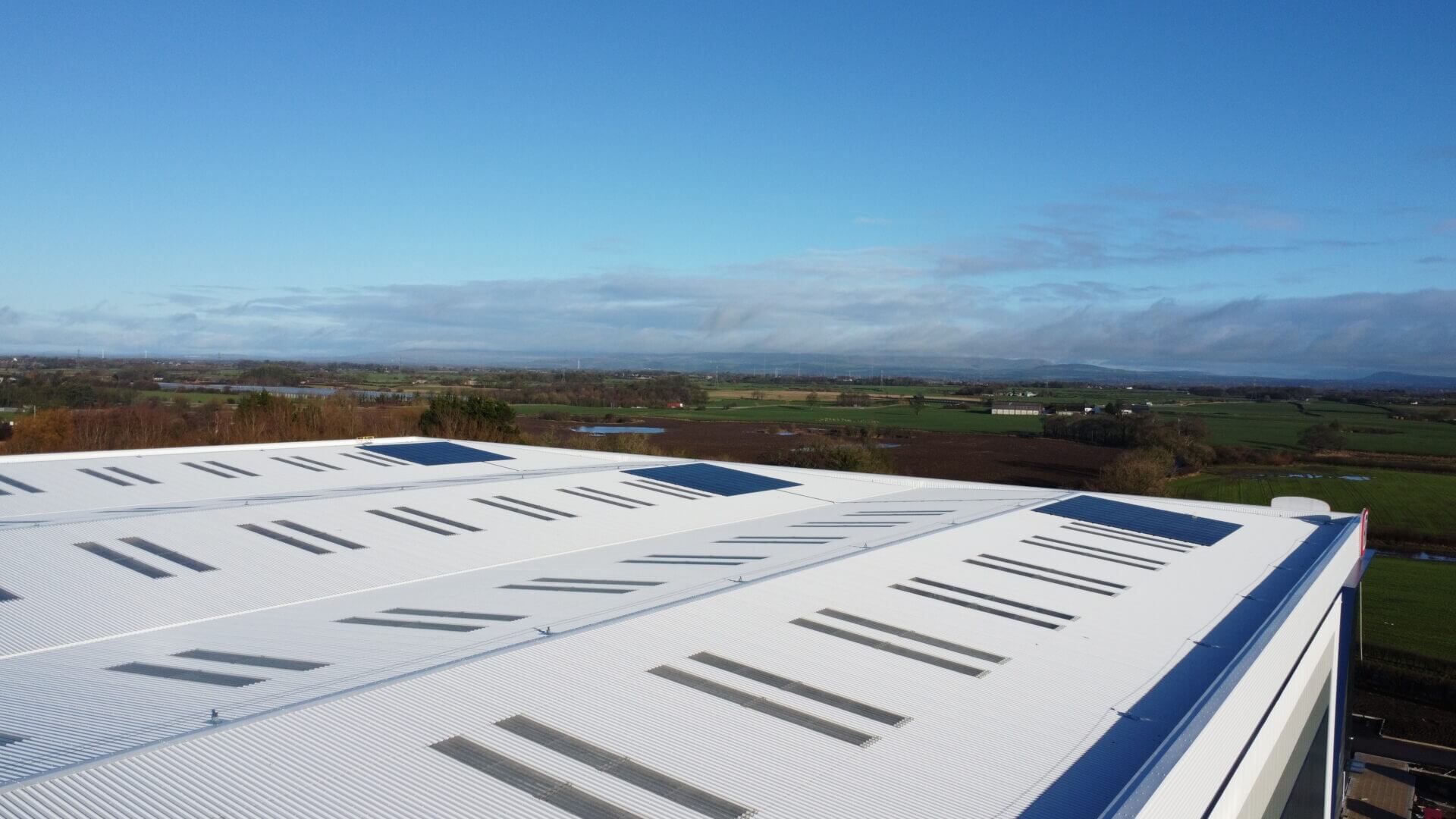The UK agricultural sector is facing two significant challenges: climate change and rising energy costs. Because of this, renewable technologies are becoming very important. Solar-powered irrigation systems are becoming a practical and sustainable solution for farms in remote or off-grid areas.
These systems can help boost farming productivity. They can also lower environmental harm and increase self-reliance for rural communities. This is especially true for those with little access to regular infrastructure.

The Need For Sustainable Irrigation
Irrigation plays a critical role in enhancing crop yield and ensuring food security, particularly as weather patterns become more erratic due to climate change.
However, many farms in the UK, particularly those in remote parts of Scotland, Wales, Northern Ireland, and the uplands of northern England, face logistical and financial barriers to accessing reliable water and electricity supplies.
Traditional irrigation solutions powered by diesel or petrol engines are increasingly unsustainable, both economically and environmentally.
In this context, solar-powered irrigation systems (SPIS) offer an effective and forward-thinking alternative. By leveraging solar photovoltaic (PV) panels to power water pumps, these systems eliminate fuel dependency, reduce carbon emissions, and promote long-term operational cost savings.
How Solar Irrigation Systems Work
A typical solar-powered irrigation system includes the following components:
- Solar PV Panels: These capture sunlight and convert it into electrical energy.
- Inverter and Charge Controller: These devices regulate the power output and protect the system from electrical surges or storage inefficiencies.
- Water Pump: Depending on the water source and terrain, this may be a submersible pump (for deep wells) or a surface pump (for rivers, streams, or tanks).
- Water Storage Tanks: These allow for water to be stored during daylight hours and used as needed.
- Distribution System: Drip irrigation, sprinkler systems, or gravity-fed lines may be used to deliver water to crops efficiently.
Modern systems can also incorporate sensors, timers, and data-logging tools to enable precision irrigation, ensuring water is applied only when and where it is needed.
Advantages For Off-Grid & Remote UK Farms
Energy Independence and Reliability
For farms without access to the national electricity grid, solar-powered systems provide a stable, reliable source of energy. Once installed, they can operate autonomously with minimal maintenance, significantly reducing vulnerability to energy price volatility and supply chain disruptions.
Cost Efficiency
Although initial capital expenditure may be higher than conventional systems, solar irrigation offers considerable savings over time. The absence of fuel costs, combined with low maintenance requirements and increasing affordability of solar panels, contributes to a strong return on investment. Various financial models, including leasing, cooperative ownership, and government grants, can help offset upfront costs.
Environmental Sustainability
Solar irrigation aligns with the UK’s commitment to achieving net-zero carbon emissions by 2050. It eliminates the use of fossil fuels, reduces air pollution, and supports the transition to low-carbon agriculture. Furthermore, when paired with water-saving technologies such as drip irrigation, these systems contribute to better water stewardship and soil health.
Resilience and Adaptability
Solar-powered systems are inherently modular and scalable. They can be tailored to suit a variety of farm sizes and topographies, from smallholdings and crofts to diversified estates. This flexibility makes them ideal for the UK’s geographically varied agricultural landscape.
Regional Applications In The UK
- Scottish Highlands and Islands: Remote crofts and small livestock farms can use solar-powered pumps to draw water from lochs, burns, or boreholes, supporting grazing and horticulture.
- Wales and Northern Uplands: Hilly and hard-to-reach terrain benefits from portable or mobile solar units that reduce the need for complex infrastructure.
- South West England and East Anglia: Mixed farms and arable producers can integrate solar irrigation with existing water harvesting systems to improve year-round resilience.

Policy Support & Incentives
Several UK government schemes and regional initiatives support the adoption of renewable energy in agriculture. These include:
- Sustainable Farming Incentive (SFI): Offers payments for practices that improve environmental outcomes, including efficient water and energy use.
- Countryside Stewardship: Provides funding for resource protection and capital items such as irrigation equipment.
- Smart Export Guarantee (SEG): Allows farms to sell surplus solar electricity back to the grid, potentially improving system payback.
Farmers are also encouraged to consult with local authorities, agricultural advisors, and renewable energy consultants to explore funding opportunities and ensure compliance with planning regulations.
Future Outlook
With continued advances in solar technology and growing policy emphasis on sustainable agriculture, the outlook for solar-powered irrigation in the UK is strong.
Improved battery storage, AI-driven irrigation management, and integrated water-harvesting systems are likely to enhance system performance and accessibility in the years ahead.
Adopting solar irrigation not only strengthens the economic and environmental resilience of remote and off-grid farms, but also contributes to a more self-sufficient and climate-smart agricultural sector.
As the UK seeks to balance food security with sustainability, solar-powered irrigation will be an essential tool for farmers adapting to the demands of the 21st century.
Contact Eco Solar Solutions UK today. Let’s talk about a system made for your land and needs. Together, we can build a smarter, greener farm for the future.

